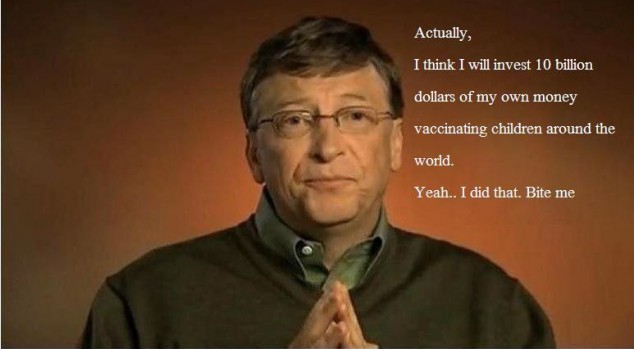#6 Persevere
Windows 1.0 actually wasn’t much of a success.![]()
Microsoft released Windows 2.0 two years later, in 1987, but it didn’t fare much better. It found moderate success thanks to software – in particular, Excel, Word, and Aldus Pagemaker.
It wasn’t until 1990, when Microsoft launched Windows 3.0, that they found significant success with a graphical operating system. It was a big moneymaker for the company and it sold over 10 million units in just two years.
Microsoft had found the model that would transform them into a computer software giant.![]()
#7 Share Your Vision with Your Team
Just as Gates has seen the advent of the graphical interface years in advance, he predicted the preeminence of the Internet long before the average Joe had a dial-up connection.
By May 1995, Gates was so convinced that the Internet was Microsoft’s future, that he felt compelled to write a very, very long memo to his company. It concluded:
“The Internet is a tidal wave. It changes the rules. It is an incredible opportunity as well as incredible challenge. I am looking forward to your input on how we can improve our strategy to continue our track record of incredible success.”
Gates took the time to write this memo because he recognized how important it was for his whole team to be on board with Microsoft’s mission. The result: Windows 95 came bundled with Internet Explorer.
#8 Marketing is Simple
People don’t buy a product because it’s got a great logo or a low price. They buy because they’ve got a problem and they’re convinced that the product will solve it.
The most difficult part about marketing, then, isn’t coming up with the right tagline. It’s providing a great solution to an actual problem. If you can do that and then demonstrate it, then marketing your solution is simple.
If you show people the problems and you show people the solutions, they will be moved to act.
– Bill Gates
#9 Don’t Learn From Success
It seems obvious that we should reflect on our successes and learn from them. If we can recognize the factors that contributed to that initial success, we should be able to repeat them and repeat our success.
But Gates has argued that success can actually cloud our vision, causing us to become over-confident and unprepared for the new challenges that the future holds.
We shouldn’t ignore the patterns of our initial success. But neither should we cling blindly to particular actions or strategies simply because they’ve worked in the past.
#10 Learn from Unhappy Customers
Over the years, Bill Gates has made a ton of his customers unhappy.
Anyone who has stared at the “blue screen of death” understands why.
But as much as people love to complain about Windows, they continue to use it. Windows has been the world’s primary operating system since 1990 and it boasts a stout 82.5% market share as of August 2011.
The reason is simple: Microsoft continues to respond to customer feedback and improve their products. The attitude starts with Bill Gates, himself:
Looking Forward
Bill Gates career has been marked by his incredible vision. Microsoft beat out the competition largely because they were always looking one step ahead, to the next revolutionary idea.
The lesson here: if you want to get ahead in business, think ahead.
Gates was still thinking ahead when he retired from Microsoft in 2008. He told PC Mag that he thought the Tablet PCs, Internet TV, and natural user interface would be thriving in the near future. History is proving him right.
So, if Gates knew what was coming next, why didn’t he stick around to make it happen? Surely, he could have added a few billion more to his bank accounts.
The answer is that, at some point while thinking about the future, Gates started giving more importance to health care, poverty, and education than he did to the next hi-tech gizmo. He’s making a bigger impact on the future through The Bill & Melinda Gates Foundation than he would have made by continuing to run Microsoft.
Bill Gates started from somewhere, you too can start today.
CLICK HERE to know how you can make A LOT OF MONEY on the internet





Speak Your Mind